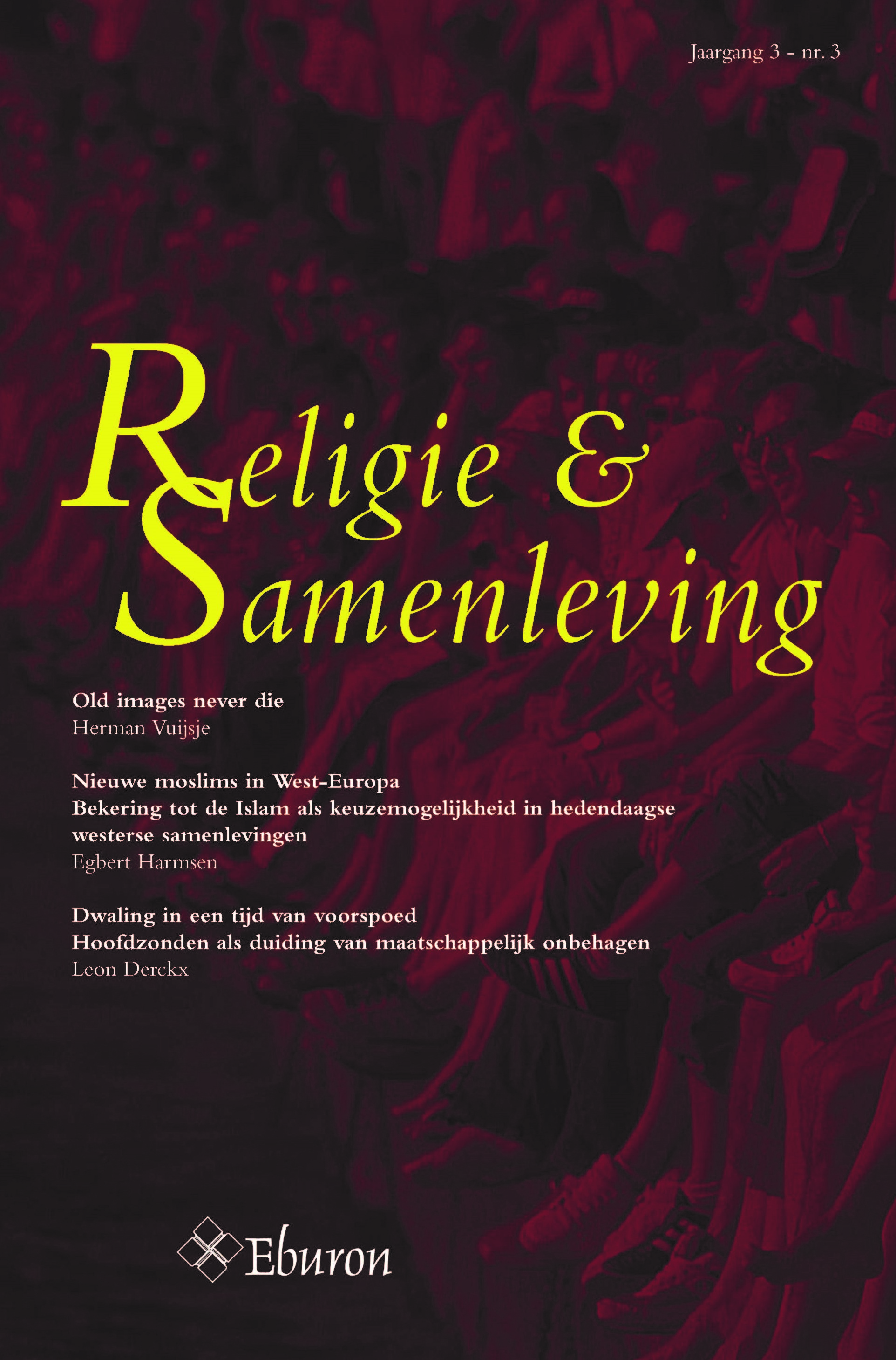Nieuwe Moslims in West-Europa
Bekering tot de Islam als keuzemogelijkheid in hedendaagse westerse samenlevingen
DOI:
https://doi.org/10.54195/RS.13152Samenvatting
This article deals with conversion to Islam in the western world in general, and in the Netherlands in particular. It is based on existing empirical literature as well as on two masters thesises and on field-research conducted by the author. The individualist nature of modern western society makes it easier for its members to choose a faith different from the beliefs of their parents, e.g. Islam. Four motivations for the choice of this faith are distinguished: social-affective ones (based on positive experiences with Muslims, through marriage or otherwise), intellectual ones (seeing Islam as a logical faith that, moreover, shapes one’s daily behavior positively), problem solving (providing a sense of dignity as well as discipline) and social-structural ones (dissatisfaction with certain patterns in western society). Research demonstrates that there is the necessary continuity between someone’s pre- en post conversion life, also in the consciousness of converts themselves. Combining a western national identity, acquired by birth, with a chosen Islamic one often results in simultaneously identifying with and criticizing the non-Muslim majority society as well as Muslim minority communities. In a social atmosphere of mutual understanding and dialogue, however, converts can play the role of bridge builders.




